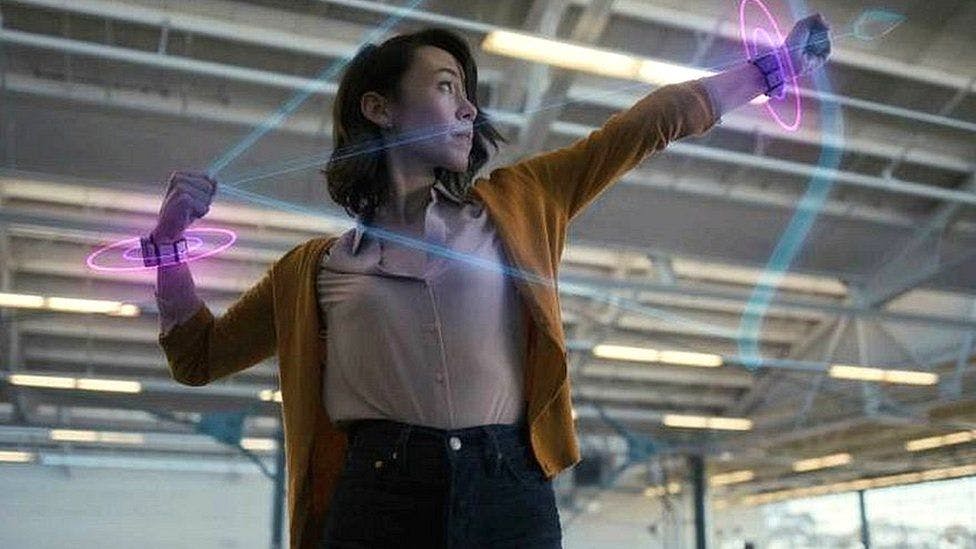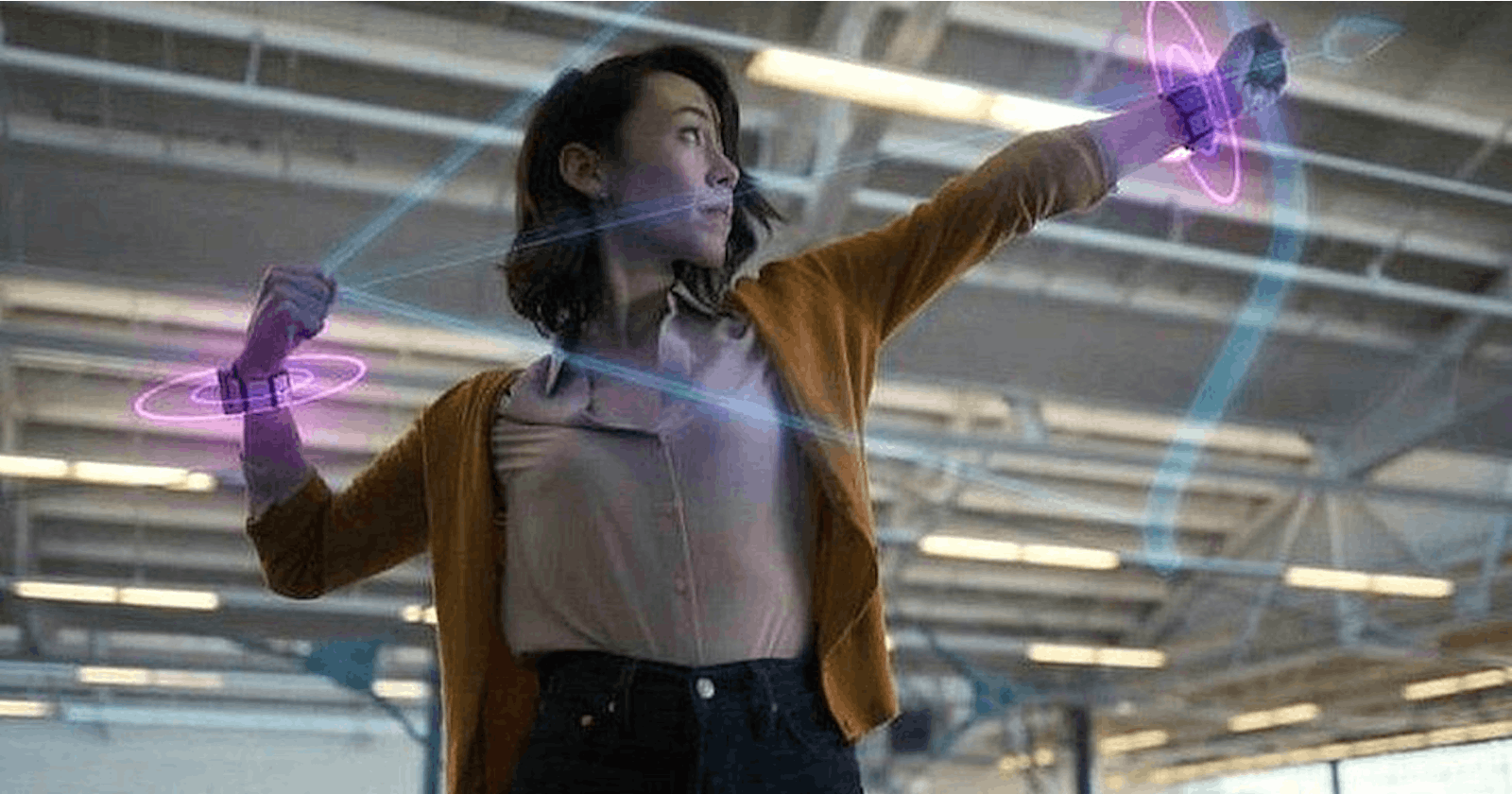
Facebook has unveiled a virtual-reality (VR) wristband that will be used to control its forthcoming augmented-reality glasses. The wristband interprets the user's hand movements via a cluster of sensors that detect motor-nerve signals.
Users will navigate by touching their index finger and thumb together to perform a "click" on the device.
Privacy experts have raised concerns regarding what data the wristband could store on its users.
- Virtual reality headsets for work 'could snowball'
- Military trials training for missions in VR
Facebook says its system will be able to adapt to the individual behaviours of its users by using machine learning to predict their likes, dislikes and other interests, in real time.
"The system learns something about your location and key objects, like your running shoes or activity recognition," Facebook's Reality Labs research science manager Tanya Jonker said.
"And it learns that, in the past, you have often launched your music app when you leave your house with those shoes on.
"Then, it asks you if you would like to play your music - and allows you to confirm it with just a click."
'Surveillance capitalism'
ProPrivacy digital expert Ray Walsh said consumers must make sure to stay informed about how much of their data was being shared with the company, as the technology began to expand into the mainstream.
"The opportunity to exploit people's eye movements and nerve impulses to detect whether they are interested in content offers endless potential for surveillance capitalism," he told BBC News.
"Legislators should look closely at the legality of this new data collection and subsequent usage to ensure that consumers are adequately protected."
The first version of Facebook's augmented-reality glasses are expected to be released at the end of the year.
Augmented-reality products
Facebook has been working on its plans for its VR platform for years.
The company first showed its interest in the technology as early as 2014, when it bought VR start-up Oculus.
Now, nearly 10,000 of its 50,000 employees work in its Reality Labs division.
And boss Mark Zuckerburg says VR will be commonplace by 2030.
Facebook's rivals, including Apple and Google, are believed to be working on similar augmented-reality products.
